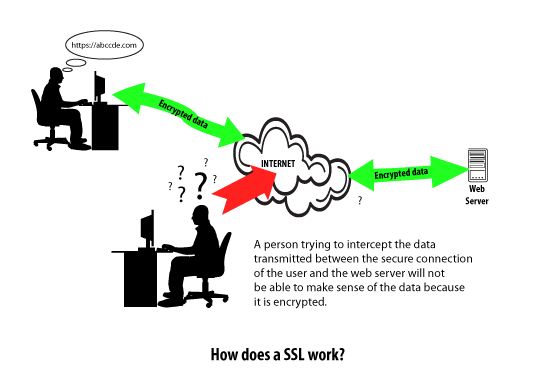
In today’s digital age, where online security is paramount, understanding Secure Sockets Layer (SSL) certificates is crucial for website owners and administrators. SSL (Secure Sockets Layer) is a protocol that encrypts the data exchanged between a web server and a user’s browser, ensuring that sensitive information remains secure from potential cyber threats. Let’s delve deeper into what SSL entails, the various types of SSL certificates available, and how to add an SSL certificate to your website.
Introduction to SSL
What is SSL?
SSL, or Secure Sockets Layer, is a cryptographic protocol that establishes a secure connection between a web server and a user’s browser. It encrypts the data transmitted between the two parties, preventing unauthorized access or tampering. SSL certificates are small data files that digitally bind a cryptographic key to an organization’s details, securing the connection.
Importance of SSL in Website Security
SSL plays a pivotal role in enhancing website security by:
- Encrypting sensitive information such as login credentials, payment details, and personal data.
- Establishing trust and credibility with website visitors.
- Boosting SEO rankings, as search engines prioritize secure websites.
Types of SSL Certificates
There are several types of SSL certificates available, each catering to different security needs:
Domain Validation (DV) SSL Certificates
DV SSL certificates verify domain ownership, offer basic encryption, and are suitable for small websites and blogs.
Organization Validation (OV) SSL Certificates
OV SSL certificates provide higher levels of authentication by validating the organization’s identity, ideal for businesses and e-commerce websites.
Extended Validation (EV) SSL Certificates
EV SSL certificates undergo rigorous validation processes, displaying the organization’s name prominently in the browser’s address bar, and instilling maximum trust in users.
Wildcard SSL Certificates
Wildcard SSL certificates secure a domain and all its subdomains with a single certificate, offering convenience and cost-effectiveness.
Multi-Domain SSL Certificates
Multi-domain SSL certificates protect multiple domains and subdomains under one certificate, providing flexibility for businesses with diverse online properties.
Choosing the Right SSL Certificate
When selecting an SSL certificate, consider factors such as the level of validation required, the number of domains to secure, and budget constraints. Matching the SSL certificate type with your website’s needs is crucial for optimal security.
How to Obtain an SSL Certificate
Obtaining an SSL certificate involves:
- Purchasing from a trusted Certificate Authority (CA) like Let’s Encrypt, Comodo, or DigiCert.
- Exploring free SSL certificate options provided by CA’s like Let’s Encrypt.
Steps to Install an SSL Certificate
Installing an SSL certificate requires:
- Preparing the server environment and generating a Certificate Signing Request (CSR).
- Following platform-specific installation instructions for cPanel, Apache, NGINX, etc.
Checking SSL Installation
After installing an SSL certificate, it’s essential to verify its installation using tools like SSL Labs or online SSL checkers. Common issues such as mixed content warnings or incomplete certificate chains may require troubleshooting.
Benefits of SSL Certificates
Implementing SSL certificates offers numerous benefits, including:
- Enhanced website security, safeguarding sensitive data from cyber threats.
- Increased trust and credibility among users, leading to higher conversion rates.
- Improved SEO rankings, as search engines prioritize secure websites in search results.
Conclusion
In conclusion, SSL certificates are indispensable for ensuring the security and trustworthiness of websites in today’s digital landscape. By understanding the different types of SSL certificates available and following the necessary steps to install and maintain them, website owners can safeguard their online presence and build credibility with users.
FAQs
- Why is SSL important for websites?
- SSL encrypts data transmitted between a web server and a user’s browser, protecting sensitive information from interception by hackers.
- Can I get an SSL certificate for free?
- Yes, several Certificate Authorities offer free SSL certificates, such as Let’s Encrypt, providing basic encryption for websites.
- How do I know if a website has an SSL certificate?
- Look for a padlock icon in the browser’s address bar or check the website’s URL, which should start with “https://” instead of “http://”.
- Do SSL certificates affect website performance?
- While SSL encryption may slightly increase server load, the benefits of improved security and user trust outweigh any negligible performance impact.
- What should I do if my SSL certificate expires?
- Renew your SSL certificate before it expires to prevent security warnings and ensure uninterrupted website functionality.


Leave a Reply